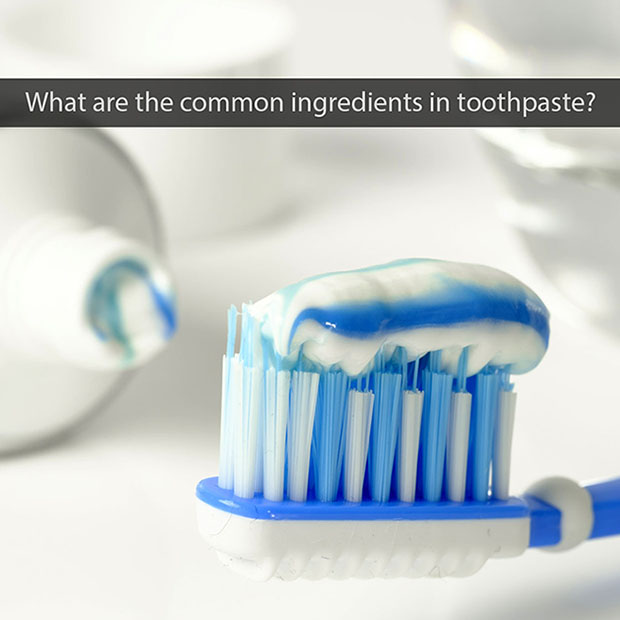What’s in Toothpaste?

Most of the time, the only toothpaste ingredient that really gets talked about is fluoride.
Fluoride is the active ingredient that helps remineralize tooth enamel and protects teeth from decay. The American Dental Association calls fluoride “nature’s cavity fighter,” and toothpaste must contain it in order to receive the ADA’s Seal of Acceptance.
Fluoride
Toothpaste containing fluoride is safe for young children if used in the correct amounts (a smear the size of a grain of rice up to age 3, the size of a pea from ages 3-6) and with parental supervision to make sure they spit it out. Let’s take a look at the other toothpaste ingredients.
Abrasives
Abrasives, such as calcium carbonate, dehydrated silica gels, and hydrated aluminum oxides, are toothpaste ingredients that help remove food debris and surface stains. They are there to scrub and polish the surface of our teeth, but be careful not to scrub too hard, because we can cause a lot of damage to our teeth and gums by overbrushing.
Flavors
Flavors, including sugar-free sweetening agents like saccharin or sorbitol, make our toothpaste taste good (because fluoride and abrasives on their own do not). The ADA will not give its Seal of Acceptance to any toothpaste that contains sugar.
Humectants
Humectants like sorbitol, glycol, or glycerol keep our toothpaste from becoming dry and crumbly. They trap water in it and give it a nice, smooth texture that can squeeze out of a tube.
Detergents
Finally, detergents like sodium lauryl sulfate make toothpaste foamy, ensuring that the other ingredients effectively coat our teeth.
